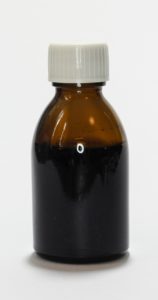 In fall and winter, we see an increase in the rates of respiratory virus infections *(upper respiratory infections or URI). We all recognize the common cold with runny nose and congestion, mild sore throat, cough, and headache. There are many different viruses that can cause these mild symptoms. Other respiratory viruses can cause more severe symptoms such as fever, shortness of breath, marked wheezing, prolonged severe cough and even pneumonia.
In fall and winter, we see an increase in the rates of respiratory virus infections *(upper respiratory infections or URI). We all recognize the common cold with runny nose and congestion, mild sore throat, cough, and headache. There are many different viruses that can cause these mild symptoms. Other respiratory viruses can cause more severe symptoms such as fever, shortness of breath, marked wheezing, prolonged severe cough and even pneumonia.
We now have readily available tests that can tell us exactly which virus is causing your symptoms. We generally don’t bother testing patients with milder symptoms but when symptoms are more severe testing is helpful. The most important question when we think about respiratory viruses during the colder months is whether or not you have influenza.
Unlike most respiratory viruses the flu virus (influenza) makes you feel sick. Symptoms often start with a sore throat and some nasal congestion but quickly patients develop marked body aches, headache and feeling so unwell that you just want to stay in bed. Fever is common as well. Some patients experience nausea, abdominal discomfort or even vomiting and diarrhea.
The treatment for minor respiratory virus symptoms is generally supportive (that is doctor speak for no specific therapy). Hot tea with honey may help soothe your sore throat. A good box of soft tissues is a must. Medications for your cold symptoms in several broad types.
Cold Medicines
- Decongestants: pseudo-ephedrine or Sudafed. Very effective but patients with PAH should avoid as these medications can raise the blood pressure in your body and lungs. Patients who do not have PAH may use them cautiously for a day or two.
- Sedating Antihistamines: these are the first generation of allergy medications. They dry up the secretions in your nose and also make you sleepy. They are best used at night time.
- Cough Suppressants: there are a variety of over the counter options but guaifenesin is the most common. This medication is safe in PAH but beware of combinations with the decongestants.
- Zinc Preparations: There is a small amount of data supporting the use of zinc in shortening the duration of respiratory virus symptoms. However, in excess zinc can causes problems with taste, smell and GI symptoms.
- Pain Medications: acetaminophen is safe and effective when taken in moderation.
- My personal favorite is homemade chicken soup.
Influenza is a Potentially Life-threatening Infection
You will feel sick. Fever and muscle aches are very common and should immediately suggest something more serious than the common cold. Everyone should get the flu vaccine each fall. There is no good reason not to get the flu shot. People make many excuses and invoke bogus science but at the end of the day we all should get a flu shot. You can still get influenza even if you had your flu vaccine. Chances are it will be milder than if you did not have the vaccine. There are several treatments for influenza: oseltamivir (Tamiflu) and zanamivir (Relenza). For patients with chronic lung problems we only recommend oseltamivir. This medication is taken at the earliest sign of influenza (even before you have a proven diagnosis). The best effects are seen when taken within the first 48 hours. Standard dosing is 75mg taken twice daily for 5 days. Oseltamivir may also be used to prevent influenza infection in patients with strong exposures. The preventative dose is 75mg once daily for 10 days. An ounce of prevention is worth many pounds of cure. Get vaccinated.
For more on the flu and what it means for Pulmonary Fibrosis patients, click here.